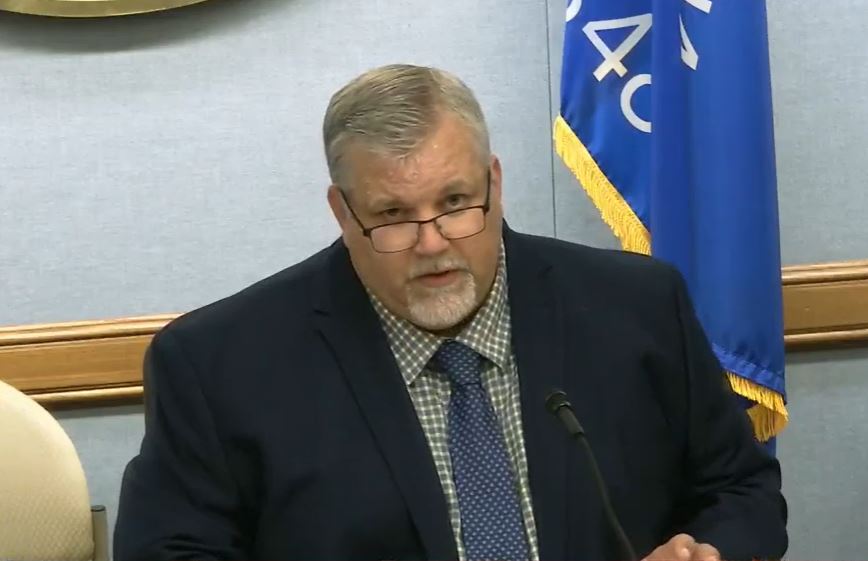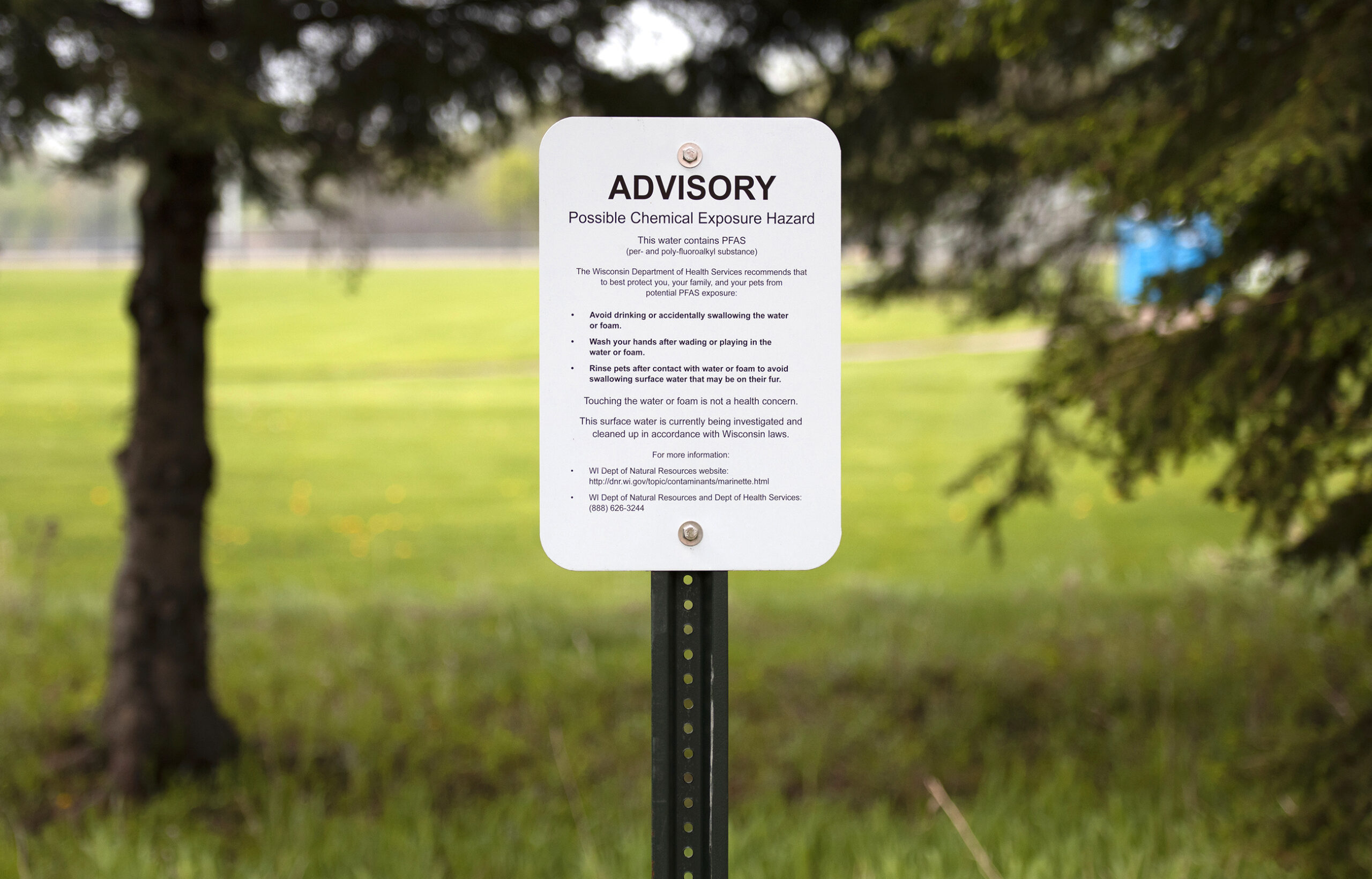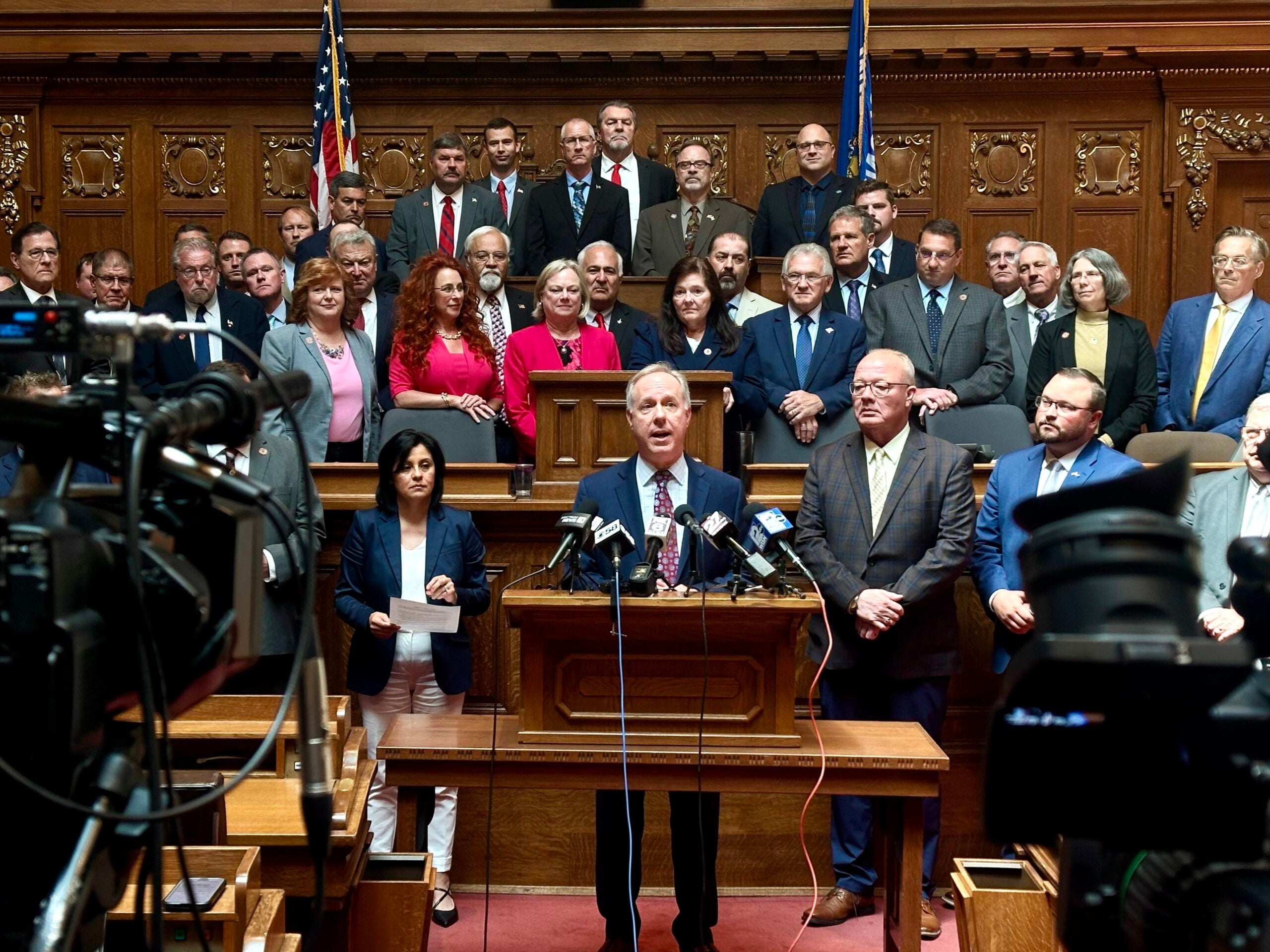Republicans on the state Senate’s sporting heritage committee pressed Gov. Tony Evers’ new appointees to the Natural Resources Board on a wide range of issues Tuesday, including their stance on wolf management and who should pay to clean up PFAS pollution.
In October, the GOP-controlled Senate voted to fire four appointees to the board that oversees environmental and wildlife regulations. Lawmakers rejected confirmation of Sharon Adams, Sandra Dee Naas, Dylan Jennings and Jim VandenBrook, knocking them off the board.
Evers blasted the move and immediately appointed four new members. They include former state Department of Natural Resources Deputy Secretary Todd Ambs, former DNR Environmental Loans Section Chief Robin Schmidt, former Democratic state Sen. Patty Schachtner and former Menominee Indian Tribe Chair Doug Cox.
News with a little more humanity
WPR’s “Wisconsin Today” newsletter keeps you connected to the state you love without feeling overwhelmed. No paywall. No agenda. No corporate filter.
On Tuesday, GOP lawmakers questioned Evers’ new appointees about their positions on management of the state’s wolf and deer populations, and tried to get their positions on who should be responsible for PFAS pollution cleanup costs. They also pressed them about how much public land the state should set aside, and whether the DNR should expedite its review of a proposed pipeline project in northern Wisconsin.
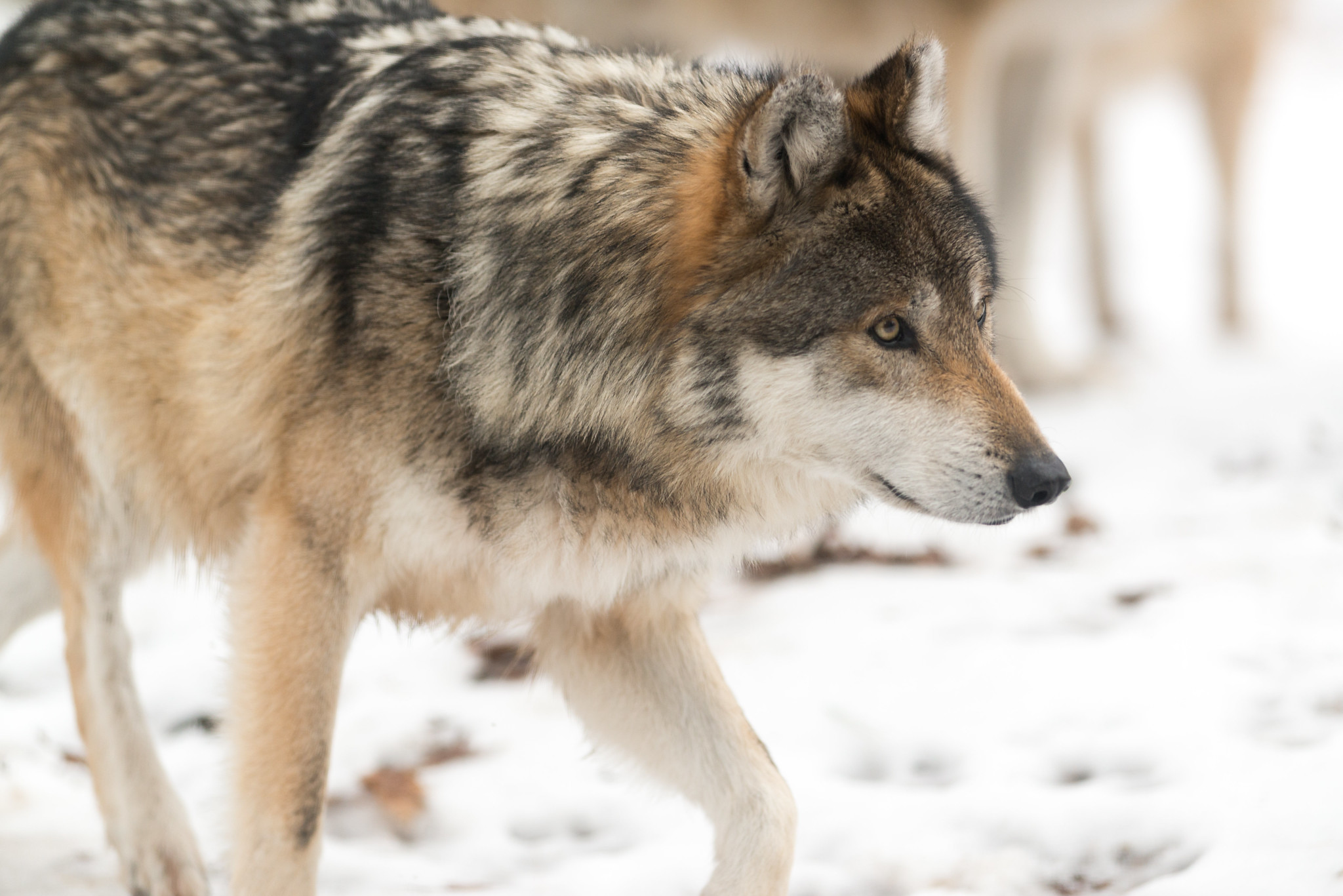
Are wolves affecting the state’s deer population?
Committee chair Sen. Rob Stafsholt, R-New Richmond, questioned appointees on whether they felt the deer population was too low in northern Wisconsin and how wolves may affect the deer herd.
Ambs pointed to the recent gun deer season, during which hunters killed nearly 18 percent fewer deer than last year statewide. In northern Wisconsin, hunters bagged around 30 percent fewer deer. The DNR cited less than ideal conditions due to extreme snowfall last winter.
“When you’ve got a heavy snowfall and cold winter, you’re going to have a weaker deer population. You’re going to have more predation, and one of those entities that are going to (prey upon them) are wolves certainly,” Ambs said. “So it’s certainly a piece of it.”
Even so, Ambs said a wide variety of factors play a role in the challenges of the northern Wisconsin deer herd. Schmidt agreed.
“When you have severe weather, then you have deer that are more likely to be more easily hunted, so I think there’s a combination of factors,” Schmidt said.
Sen. Mary Felzkowski, R-Tomahawk, asked Schachtner who the board should consider when weighing potential harms tied to the state’s wolf population. The board recently approved the DNR’s wolf management plan, which doesn’t set a statewide population goal. The plan is supported by environmental and conservation groups, but farming and hunting groups are staunchly opposed.
Schachtner said board members like lawmakers have to weigh what decision may cause the least amount of harm.

Who should pay to clean up PFAS pollution?
Felzkowski also asked some appointees who should pay for cleaning up PFAS contamination. The question comes as the Senate has passed a GOP bill that would spend $125 million included in the 2023-25 budget to help local governments and landowners address contamination from the forever chemicals.
Ambs said the reality is that the cost will be borne by many.
“There’s going to be costs borne by local units of government, by people that have property where there’s PFAS on it,” Ambs said.
Schmidt said she didn’t think any one source of funding would be enough to effectively clean up the chemicals.
“It’s really going to take a partnership and collaboration with local governments, businesses, industries and the public,” she said.
The GOP bill would protect innocent landowners from paying for the cost of cleaning up PFAS contamination. Republican lawmakers say they’re trying to save people from financial ruin as long as they didn’t cause the pollution. But Democrats and environmental groups say the bill fails to hold polluters accountable and limits the DNR’s authority to test for and clean up the chemicals.
At the same time, the DNR has been pursuing proposed PFAS standards for groundwater. Felzkowski asked whether they would approve a rule for the chemicals that violates the REINS Act. The 2017 law requires legislative approval for agencies to continue crafting regulations that are estimated to cost more than $10 million in any two-year period.
Felzkowski asked Ambs, Schachtner, and Cox whether they would sign off on any proposed regulation that exceeds that threshold. Both Ambs and Schachtner said they would uphold the law.
“The (DNR) staff is required to weigh economic benefits of those, and we have to have cost benefit analyses done to make sound smart decisions,” Cox said.

Pipeline permitting and public lands
Felzkowski also asked Evers appointees about the Knowles-Nelson Stewardship Program that helps fund land purchases in Wisconsin. The Republican lawmaker has previously voiced concern about taking too much land off the tax rolls in northern Wisconsin.
Felzkowski asked most board members how much land should be set aside or whether they would support a cap on public lands. Ambs and Schmidt said that should be decided by lawmakers. Ambs said the board would operate under guidelines set by the Legislature. Schmidt agreed.
The northern Wisconsin lawmaker also asked Cox whether he felt lawmakers should have the final say on public land purchases. Cox said the Legislature and its finance committee currently have that right.
Some appointees were also questioned on whether they would support expediting the DNR’s review of Enbridge’s proposed reroute of the Line 5 pipeline that crosses northern Wisconsin. Felzkowski accused the agency of “slow-walking” its review, but Schachtner said she felt the agency was doing a good job.
“We have to follow the rules in the permits that go through,” Schachtner said.
Cox, a tribal legislator with the Menominee Indian Tribe, said there may be room to agree if the project “doesn’t jeopardize the resources of the state, and the tribal rights and responsibilities and the treaty rights” of tribes in the state. He voiced similar views with respect to the potential for mining in Wisconsin.
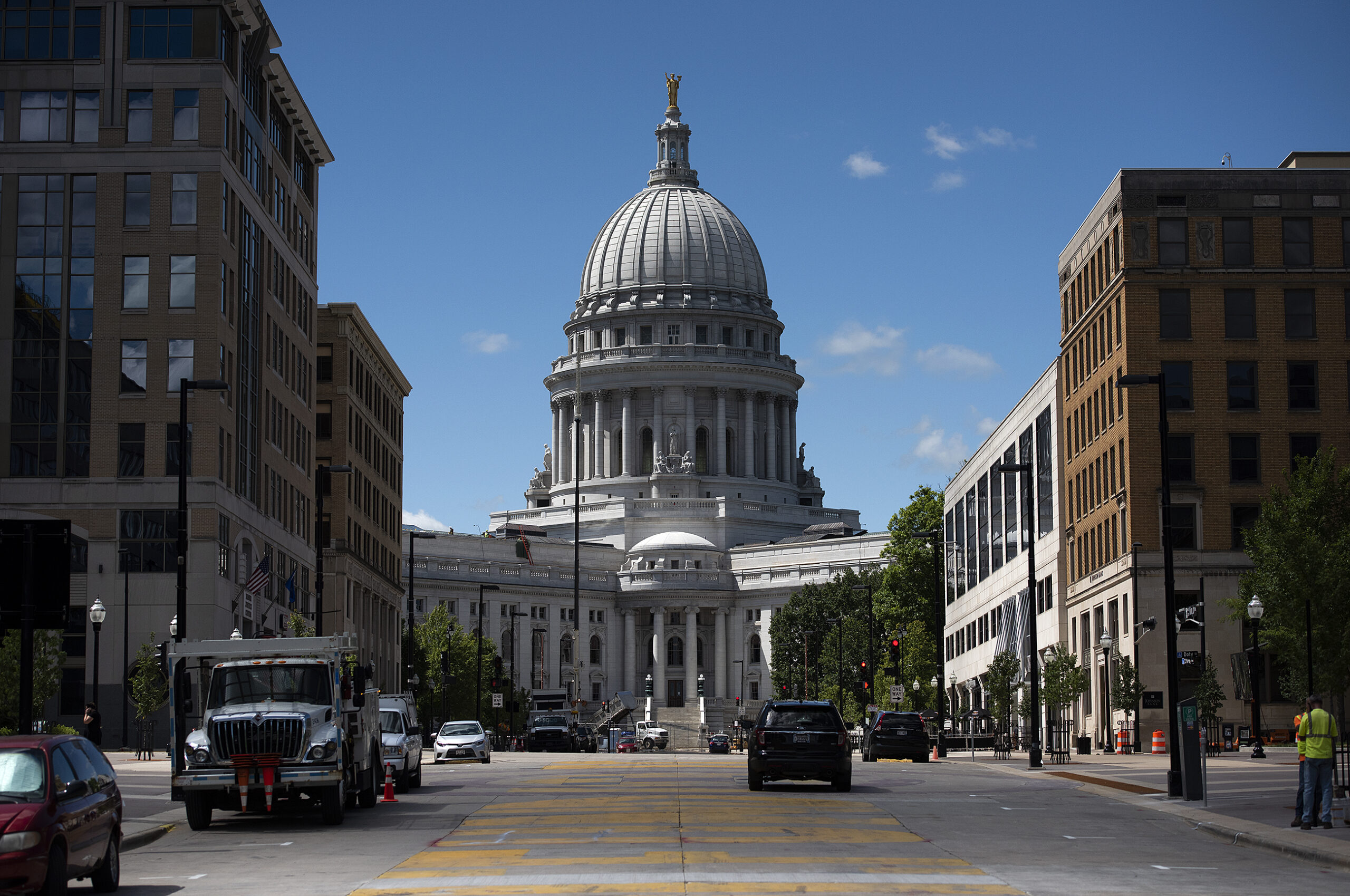
Can appointees serve in a bipartisan way?
The governor and lawmakers have sparred over nominees. At the start of this year, Republicans had yet to confirm more than 180 appointees to various boards and commissions.
Stafsholt asked Ambs whether he could work with lawmakers from both parties to guide the agency’s policy in Wisconsin. Ambs said he would look forward to doing that. He added that board members are supposed to approach their role in a nonpartisan way.
However, Stafsholt questioned how he could work with Ambs, citing a social media post in which Ambs said the Republican Party and Fox News are filled with “domestic terrorists and traitors,” using an expletive to describe them. The post has since been deleted from Ambs’ account.
At first, Ambs said he hadn’t posted anything on the social media site X, formerly known as Twitter, in many years. When Stafsholt said the post was from April of last year, Ambs said he didn’t know what it may be referencing. He added that it’s no secret he’s not a fan of Republican former President Donald Trump.
“For that, I make no apologies,” Ambs said.
The governor’s appointees can serve on the board until they’re rejected or confirmed by the Wisconsin Senate.
Wisconsin Public Radio, © Copyright 2026, Board of Regents of the University of Wisconsin System and Wisconsin Educational Communications Board.

